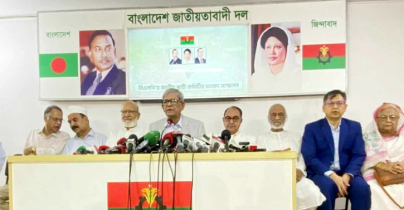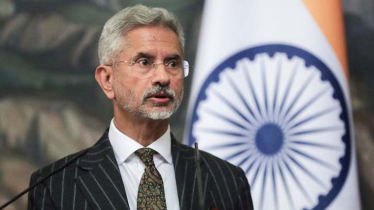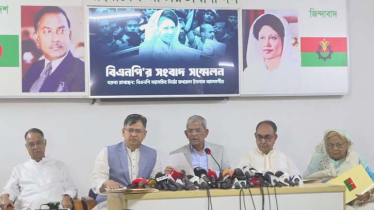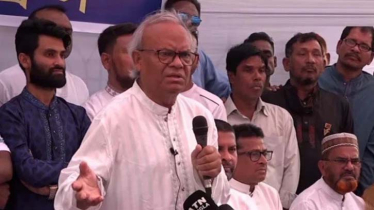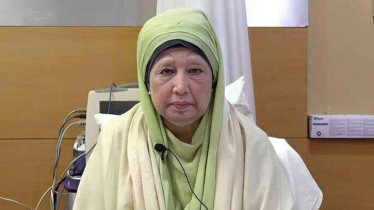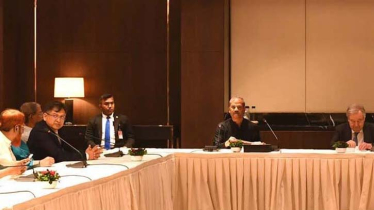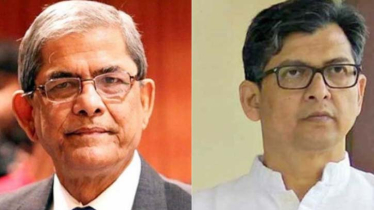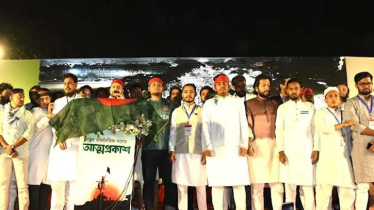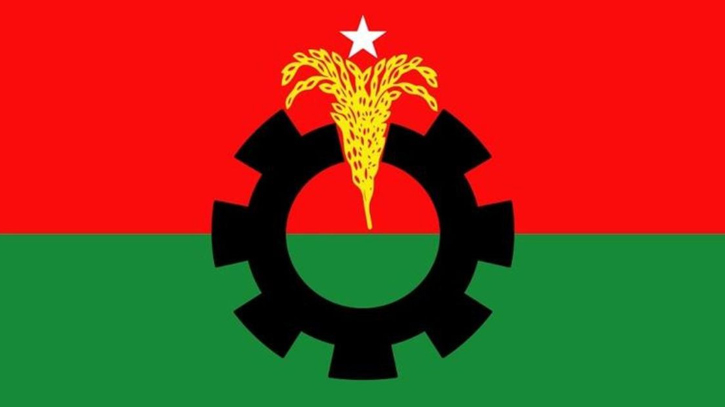
Photo : Collected
The movement to bring down the government after Eid has been announced, marking two national elections and now, the 21st Eid is before the Bangladesh Nationalist Party (BNP)! In an event back in 2014, Khaleda Zia stated, "BNP will protest after Eid. If the police force or the leaders of the government party obstruct them with weapons, they will face retaliation." On that occasion, she also emphasised that the previous movements were not successful due to various obstacles, and after Eid, the leadership would actively engage in the field.
This announcement by Khaleda Zia has been reiterated by the party's general secretary Mirza Fakhrul Islam Alamgir and other standing committee leaders for the past decade. Khaleda Zia has spent 13 Eids under house arrest and in jail, and after her imprisonment on February 8, 2018, the party's activities significantly diminished. Despite having political support, BNP failed to make significant progress in the 12th parliamentary elections due to leadership weaknesses at the highest level. Following October 28, the party's plans for continuous strikes and non-cooperation movements couldn't materialise, as many leaders were in jail and others went into hiding. However, leaders and activists have expressed their determination to take to the streets again after Eid during iftar programs in Ramadan. The public is questioning when, after 20 Eids, the BNP hasn't achieved its goals, then in which Eid will they succeed?
According to political analysts, the movement of the Bangladesh Nationalist Party (BNP) has repeatedly veered in the wrong direction and failed to address key issues effectively. Several factors have contributed to this, including poor timing and planning of their programmes. For instance, many of their pre-12th elections, programmes coincided with the rainy season, resulting in difficulties due to waterlogging on roads and hindering the success of their initiatives. Additionally, some of their actions during the Higher Secondary Certificate (HSC) examinations were not well-received by parents and the public. Another significant mistake highlighted by analysts is the delay in announcing their schedule before elections, which wasted crucial time and undermined their campaign efforts. These missteps have led to setbacks for BNP and raised questions about their strategic approach to political activism.
Regarding the movement, the Secretary General of the party, Mirza Fakhrul Islam, has emphasised multiple times that the government is provoking BNP to engage in large-scale street protests, aiming for violence and chaos. However, BNP has recognised this tactic and is determined not to fall into the government's trap. Instead, the party intends to pursue a democratic movement that will effectively pressure the government. This strategic approach has become a recurring theme in the party's discourse. There are ongoing discussions and criticisms within the party and in the online sphere regarding this strategy.
Among the discussions and criticisms, Dr. Hasan Mahmud, Joint General Secretary of the Bangladesh Awami League, mentioned that he has been hearing about BNP's post-Eid movements for many years but has yet to see significant action from them. In response, the high command of BNP has stated that it is challenging to confront an autocratic party and that it requires time to strategize effectively. This exchange highlights the skepticism from the ruling party regarding BNP's ability to execute its post-Eid plans, while BNP's leadership acknowledges the challenges they face in their political endeavors.
Standing committee member of BNP, Iqbal Hasan Mahmud Tuku, remarked, "Awami League also protested alongside a democratic party like BNP. However, we (BNP) are protesting against an autocratic party like Awami League. They have no organisation of their own; they rely solely on the police and some stick-wielding forces. It takes time for a movement against such forces. In the history of Bangladesh and Pakistan, movements have taken time. It took Pakistan 10 years to remove Ayub Khan and eight years to remove Ershad. So, we are on the path of movement, and we will succeed. Our success lies with the people."
BNP Standing Committee member Selima Rahman Rahman stated, "We are engaged in a movement aimed at overthrowing the government. We have the support of the people of the country as well as majority of the political parties. Regarding the success of the movement to overthrow the government, it's not a matter of 'when' the movement will be successful. Movements don't have a predefined timeline."
Messenger/Fameema

